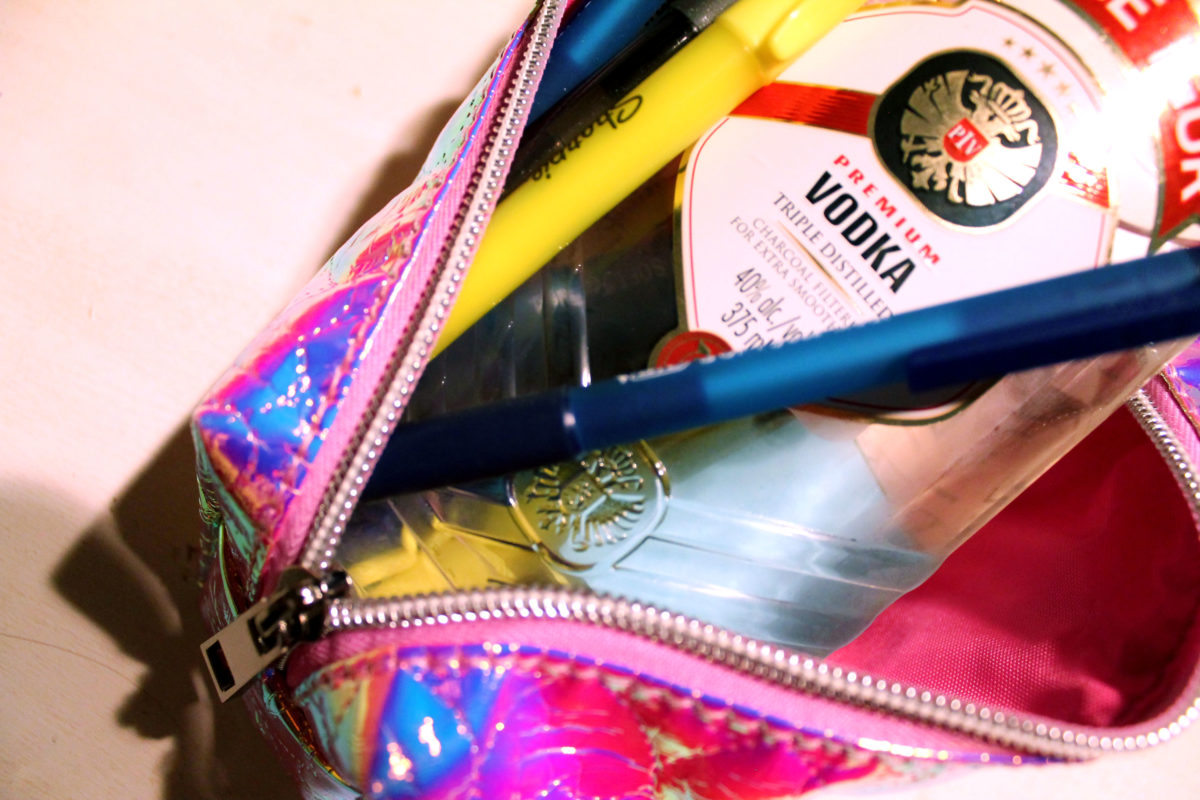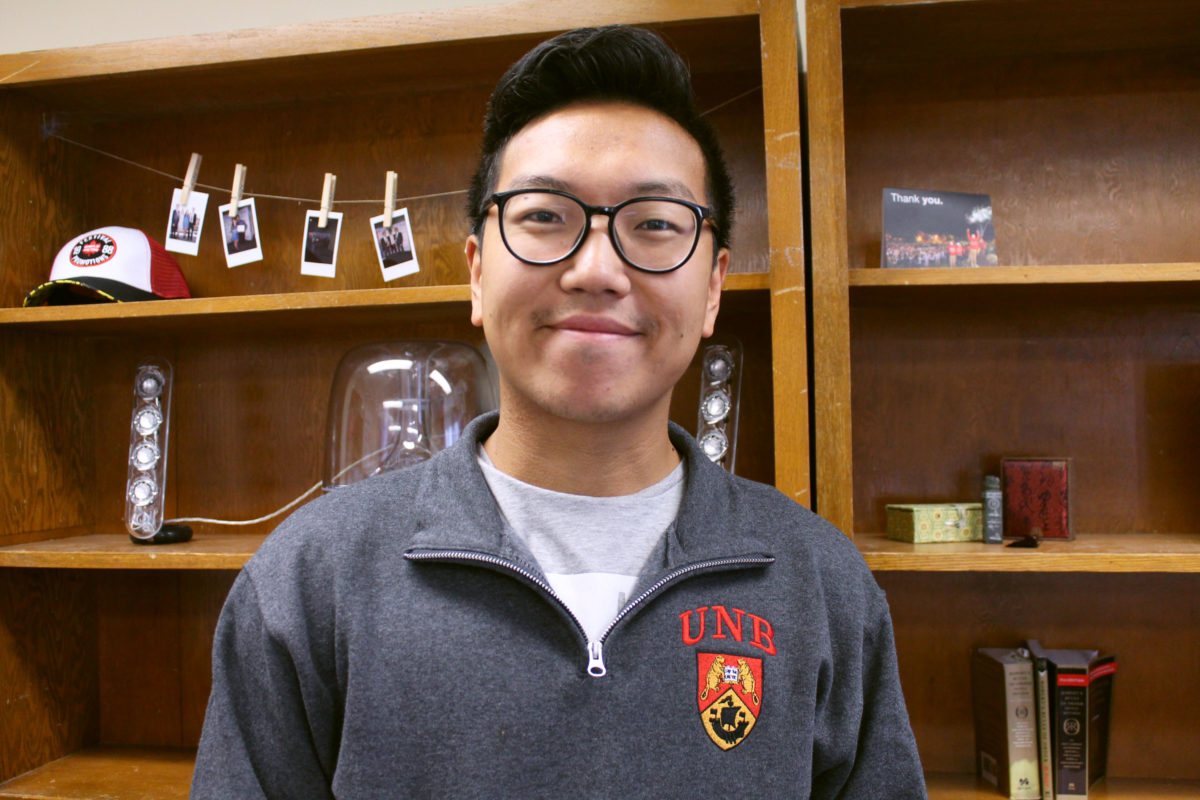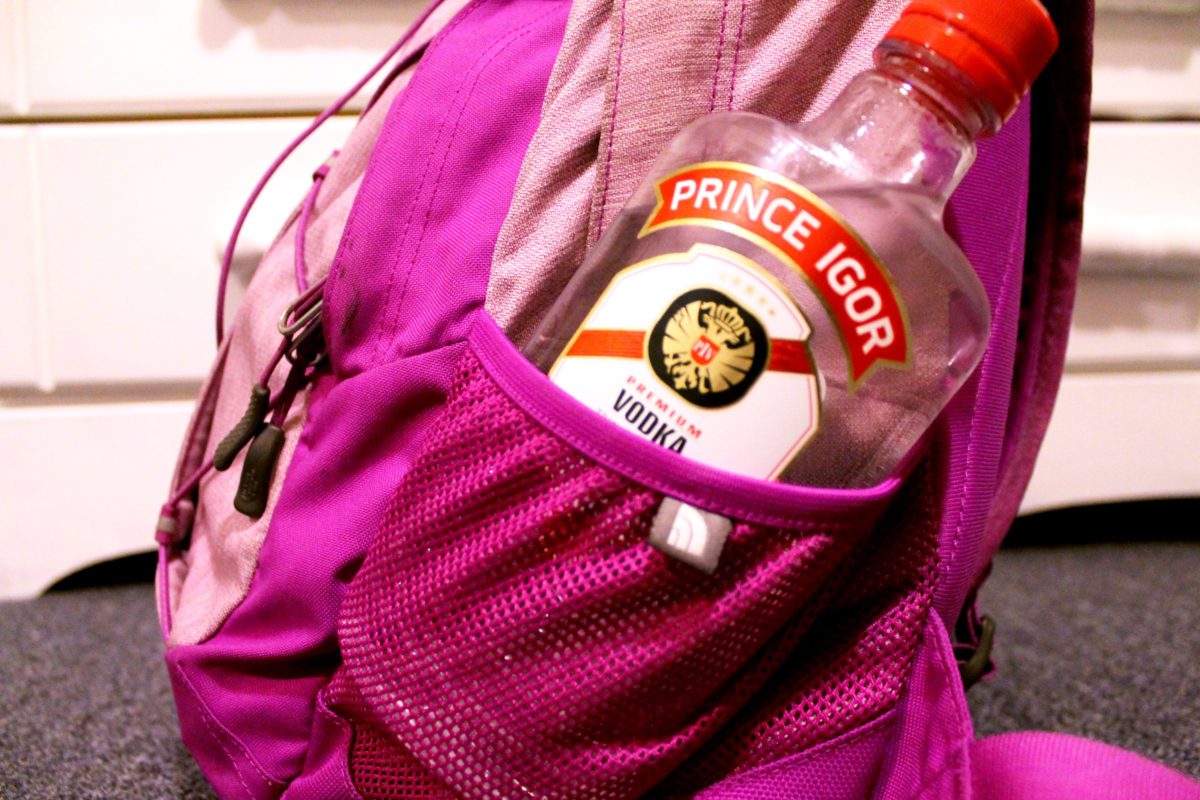
A simple Google search will tell you the best university to attend if you’re interested in spending your weekends partying.
With the stress of assignments, exams, jobs and extracurriculars, young adults with their first taste of freedom might find themselves turning to alcohol. This mentality can cause health and grades to plunge, but universities are working to combat unhealthy drinking habits.
Maclean’s survey
In a survey of 23,384 undergraduates conducted by Maclean’s in 2017, St. Thomas University ranked 11th on a list of 49 schools for the number of hours spent partying per week. Partying is described in the survey as “going to campus pub, off-campus bars and clubs, parties, etc.”
According to the survey, St. Thomas students spend an average of 4.3 hours per week partying. Coming in just one above St. Thomas, UNB spends an average of 4.4 hours per week partying. The separate UNB Fredericton and Saint John campuses are not specified in the survey.
Scott Duguay, St. Thomas’ associate vice-president enrolment, is the co-chair of the Canadian Postsecondary Education Partnership on Alcohol Harms (PEP-AH). PEP-AH formed three years ago after an alcohol-related death at Acadia University. The organization teaches students about safe drinking.
Duguay said he’s seen students become more comfortable talking about alcohol and its harms since PEP-AH’s formation.
“There were a lot of organizations, a lot of universities where students wouldn’t want to talk about alcohol harms because they thought they might get shut down,” said Duguay. “Rightfully so, they had no real reason to think the administrations would be coming at it from just a harms perspective.”
Duguay said he’s also seen improvements to the safety of drinking habits of St. Thomas students.
Sober environment
The Université de Moncton allows drinking during orientation week as long as students are 19-years-old. Mount Allison University plans their welcome week events without alcohol.
For approximately 15 years, STU has enforced a dry welcome week. All events during the week are alcohol-free and alcohol is not permitted in residence until the week ends.
First-year student Guno Toussaint lives in Harrington Hall and she feels the dry welcome week encourages students to make friends without the influence of alcohol.
“We all kind of meet each other in a more normal environment and then when the social did come, it was like a big party,” said Toussaint.
According to Rebecca Kingston, the 2018 Welcome Week chair, the goal was to allow students to meet and make friends in a sober environment.
“People tend to say it’s really nice to have that opportunity to make friends without that pressure,” said Kingston.

At the University of New Brunswick Fredericton, alcohol is permitted in residence during orientation week, but students aren’t allowed to drink or be intoxicated at events.
Richard Du, president of the University of New Brunswick Fredericton Student Union said the university aims to discourage binge-drinking.
“We want to just encourage moderate use,” said Du.

St. Thomas celebrates the end of Welcome Week with a social at the Forest Hill Conference Centre. Alcohol is not served at the event, but students can drink beforehand. The dry week used to end late in the evening, about an hour before the social. STU recently changed the end of the dry week to 4 p.m. to discourage binge drinking before the event.
“What we started with last year was ending the dry week at 4 p.m. and what we found was that people had more time to consume alcohol safely if they chose to do so and it went a lot better,” said Kingston.
Ambulances are typically called to the social for alcohol-related incidents, but this year no calls were made. Duguay said this shows the change in time has made the event safer for students.
“I think there was one student who was sick in the washroom, that was it, literally. I can tell you that’s a massive improvement over five, six years ago.”
Day of drinking
April 6 Day is an annual Harrington Hall celebration where students drink all day. Duguay has seen the event become safer over his four years at STU.
“Students have taken on the lead to say, ‘Hey, let’s bring tons of water in to play here, let’s bring some food, let’s keep some sober representatives all over Harrington, let’s encourage eating before events and those kinds of things,” said Duguay.

As for students, they appreciate STU’s efforts to teach safe drinking habits while still allowing parties.
Toussaint said although most students respected the dry welcome week rules, they were anticipating being able to drink.
“A lot of people were counting down the days until we could start drinking, and everybody got wasted on the day we could,” said Toussaint.
But Toussaint understands why STU teaches safe drinking habits and said the dry welcome week made the end-of-week party that much better.
“It was even more fun.”
